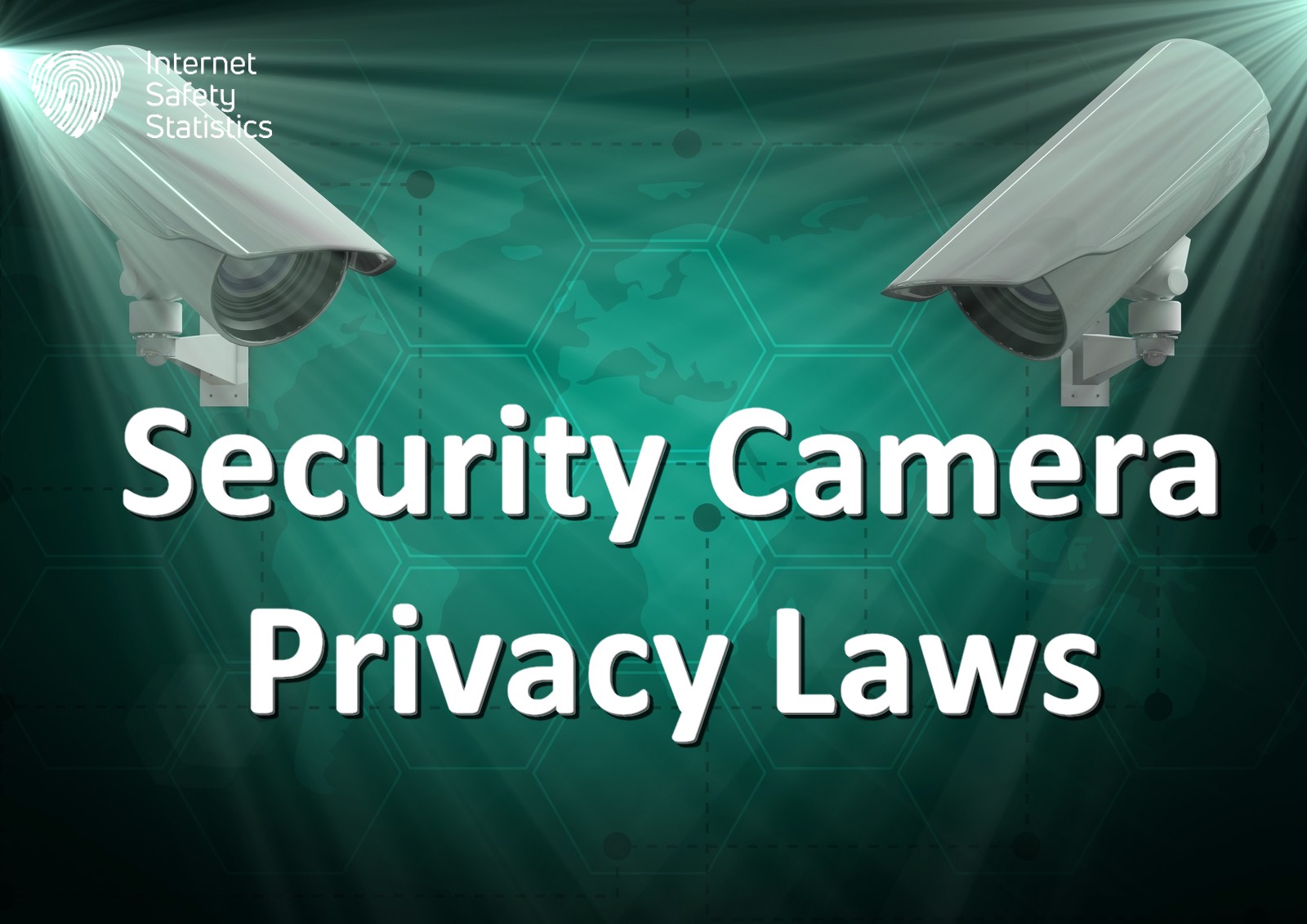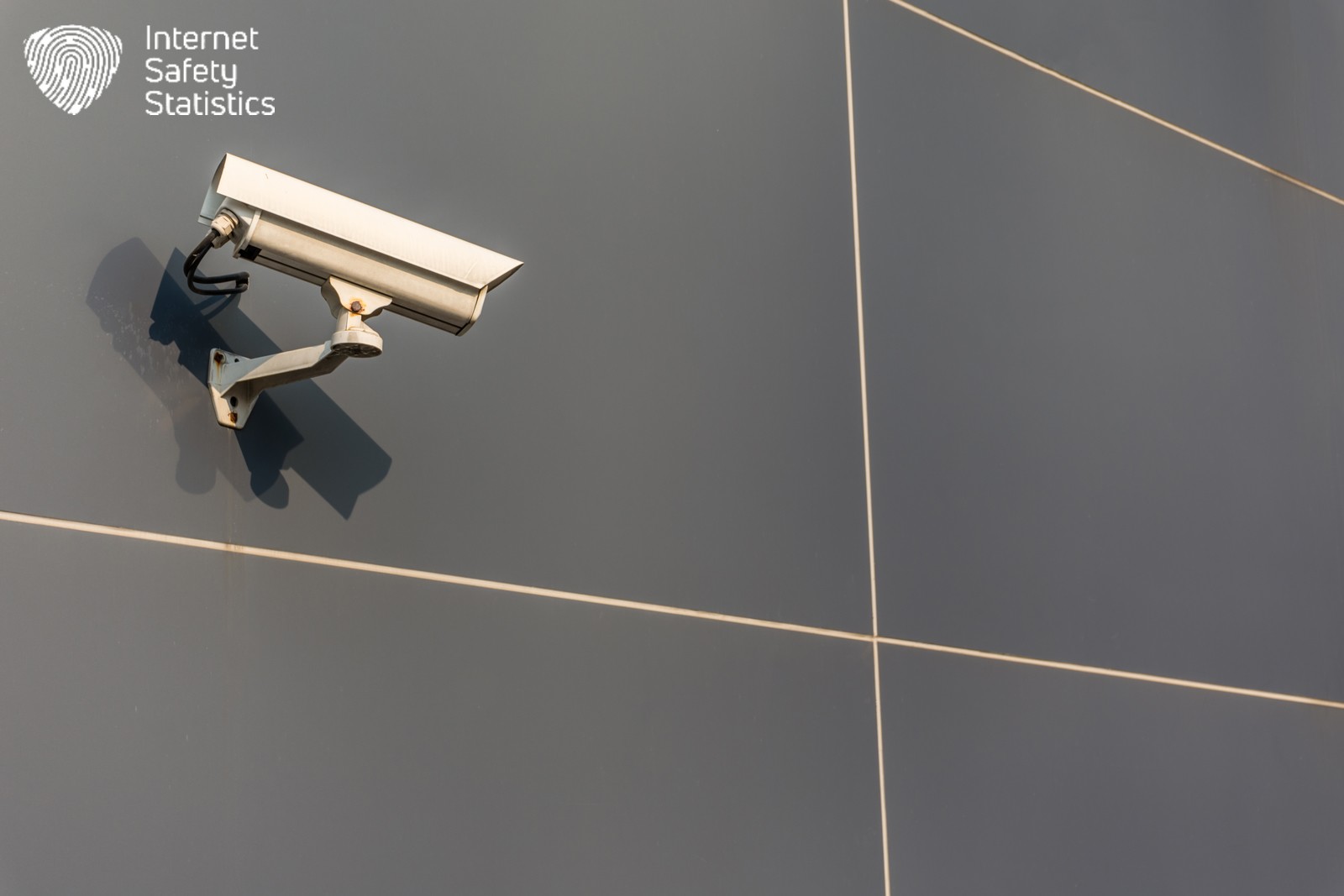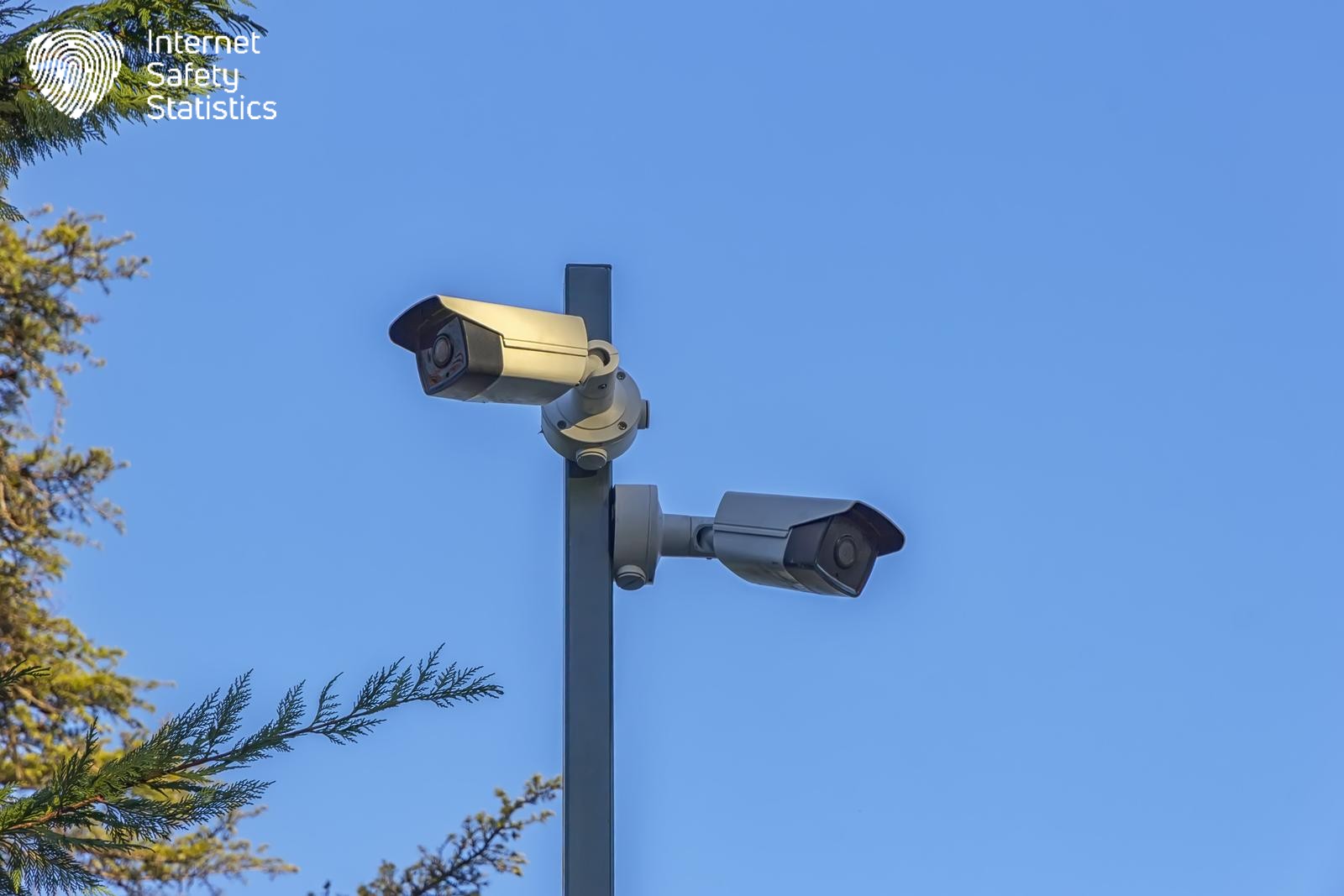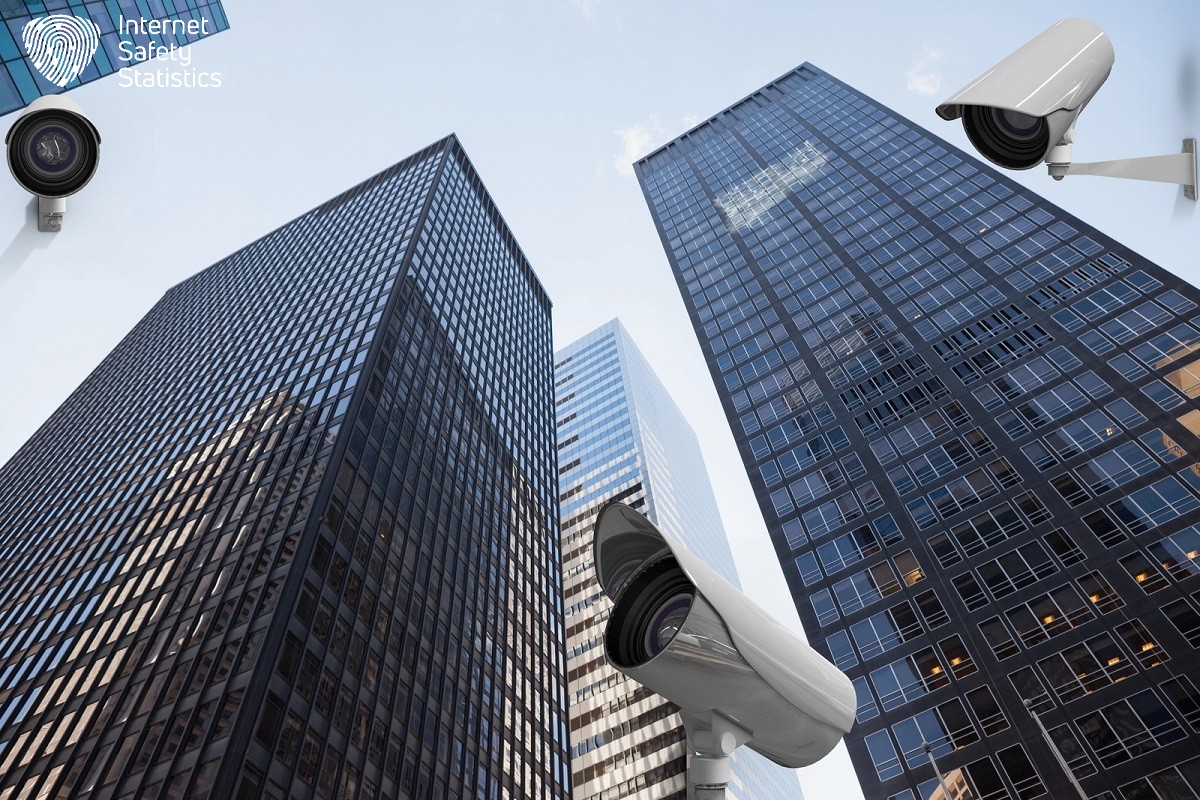
In an increasingly interconnected and security-conscious world, security cameras have become ubiquitous. These devices have become integral to our daily lives, from private homes and businesses to public spaces like streets and parks. While security cameras offer a valuable tool for deterring crime and protecting property, their widespread adoption raises important questions about privacy and the boundaries of surveillance.
In this article, we discuss Security Camera Privacy Laws, what it means to use security cameras, the pros and cons of such devices, and whether they are legal or an invasion of privacy, among other essential topics.
What Does It Mean to Use Security Cameras?
Using security cameras is installing surveillance cameras to capture audio and video recordings or ensure the safety of properties, areas and, or individuals. Security cameras have long been the subject of heated debate between security and privacy. However, we cannot deny their importance in keeping institutions, households and individuals safe.
These surveillance cameras are connected to a portable storage device to store all captured footage or audio files safely. Such recordings can serve various purposes, such as:

- Monitoring the parameters of a household to prevent unauthorised access.
- Monitoring institutions, shops and businesses to deter crime and capture individuals attempting to access the buildings forcibly.
- Security cameras, or CCTV cameras, have proved integral in criminal investigations. Using the CCTV footage here can serve more purposes to identify possible suspects, gather evidence or, at times, have a complete recording of the crime, which incredibly helps achieve justice.
- CCTV cameras are installed in numerous places, such as preschools, playgrounds, malls, hospitals, and even prisons, to ensure the attendees’ safety. Although each location includes further details regarding the use of surveillance cameras, they are all installed to ensure the safety of the people there.
- As a business owner, you might need to install CCTV cameras to monitor your business’ activity and ensure work runs smoothly in your offices. You can install cameras on the premises to monitor security and ensure the achievement of operational purposes.
- Security cameras play a vital role in preventing crime when the person responsible for them notices suspicious behaviour through the camera and informs the authorities in charge.
- Lastly, we can add that security cameras can help find and bring home lost or missing people by scanning through the CCTV footage.
Who Can Use Security Cameras?
Individuals, businesses, government agencies and other organisations can use security cameras. However, governments impose specific regulations on different entities to prevent violation of privacy and societal laws, such as stricter data protection requirements for businesses.
The Upsides and Downsides of Using Security Cameras
As with most technological advancements, CCTV systems have pros and cons that each side uses as debate points when discussing security cameras, their role in worldwide societies and those who uphold them as a stark invasion of privacy.
The Upsides of Using Security Cameras
The pros of installing a CCTV system are closely tied to the purposes of public and domestic CCTVs. These are as follows:

- In both public and domestic domains, CCTVs effectively predict, prevent, and investigate crimes and vandalism.
- Security cameras have become vital in collecting evidence for criminal investigations. These roles include a preview of possible suspects, accomplices, the crime’s events or, in some cases, the entire crime filmed on camera.
- Enhancing the security situation of individuals and properties. As mentioned earlier, they can be installed to monitor patients, infants, or students and keep an eye on private property and belongings. Some institutions, like banks and financial institutions, must use security cameras to closely monitor movement inside the facilities and spot any suspicious behaviour.
- Real-time monitoring of vulnerable areas or businesses is one of the main merits of installing security cameras. You can, from anywhere, open your laptop; some CCTV software has a mobile application now, which you can open and see your household, children, or valuables live to ensure their safety.
The Downsides of Using Security Cameras
The main argument against security cameras is that they constitute an invasion of privacy. However, this is just the tip of the iceberg.
- Many organisations perceive security cameras as an invasion of individuals’ right to privacy at home, in public places or when seeking certain services such as hospitalisation or seeking medical care.
- Security cameras mainly serve legal purposes but can also serve non-security or illegal purposes. The scope of these purposes is vast; security footage can be used for blackmail, spying on individuals, destroying a business’s reputation, and humiliating them.
- Security footage is typically stored on a storage device, whether a physical or a virtual one. This fact means that these storage devices can be a target for hacking. If either storage device is not adequately protected alongside your network connection, a cyber attacker can exploit a vulnerability in your network and steal security footage. What the attacker can do with the stolen footage resembles the examples we explained in the previous point.
- Just as security cameras significantly help society, they can also be a means for discrimination. Usually, security cameras help lift injustices, but they can also inflict them by limiting specific individuals from accessing security footage.
Is it Legal to Use Security Cameras?

The legality of using security cameras depends on the jurisdiction and circumstances of the user and the vicinity of usage. Generally, private owners can use the cameras on their personal property to monitor and protect their property and belongings. However, the restrictions are more onerous on recording individuals in public spaces, particularly in areas with a reasonable expectation of privacy, such as hospitals.
Video Recording vs. Audio Recording
Generally, video recording is permitted in public areas; it’s also the most common form of surveillance. However, stricter measures apply to an audio recording. Some jurisdictions require the consent of the individuals being recorded or even a legal warrant.
What Are the Security Camera Privacy Laws that Govern Domestic CCTV?
Various laws and regulations govern the use of domestic CCTV; we can divide them into three categories.
- Privacy Laws that protect individuals’ right to privacy regulate personal data collection, use and storage, including video and audio recordings. The Human Rights Act 1998 protects individuals’ right to privacy, and the use of domestic CCTV must comply with this law.
- Surveillance Laws govern the government agencies’ use of surveillance technologies to ensure the surveillance is justified and serves legitimate purposes. The Surveillance Camera Code of Practice provides guidance and best practices for using CCTV cameras, including domestic systems.
- Data Protection Laws that protect personal data and ensure the transparent, lawful and fair collection, processing and storage of such data. The Data Protection Act 2018 regulates collecting, storing, and using personal data, including footage from domestic CCTV systems.
How Do We Ensure Data Protection and Compliance When Using Domestic CCTV?
Data protection and compliance when using domestic CCTV entails knowledge of the following information.
- Ensure that the CCTV system complies with data protection laws, such as the GDPR or the General Data Protection Regulation in the European Union. This regulation allows collecting and processing of only necessary personal data and ensures that the data is securely stored and protected.
- It’s best to inform individuals they are being filmed or their data is being recorded and obtain their consent, if necessary, to avoid legal persecution.
- Make the CCTV system access-only, which means limiting access to it to authorised personnel. Ensure strong security measures such as strong passwords and encryption are used to prevent unauthorised access.
- Keep the CCTV system up to date to ensure its functionality and compliance with data protection laws.
- It’s best to train CCTV personnel on data protection laws and ensure their knowledge of the best practices for handling and storing personal data.
- You can seek legal advice regarding the compliance of your CCTV system with data protection laws and other relevant regulations.
- Be transparent about how the CCTV system works and what data it collects. Furthermore, try to respond to any access requests to personal data following data protection laws.
What Are the Privacy Implications and Considerations of Using Home CCTV?
The never-ending debate between the right to privacy and the use of CCTVs is even present when using cameras in the household. The implications of such use are:
Invasion of Privacy
Although you might be keeping an eye on your private property by installing a security camera, you might be invading the privacy of the residents of this property and your neighbours. These cameras might capture or record activities that individuals prefer not to have recorded.
Data Security
Since home CCTV cameras capture sensitive personal data, any privacy breach or unauthorised network access puts this data at risk.
Location Tracking
Cyber attackers who gain access to your home CCTV system can use the recordings to track the movements and routines of the residents, which they can further use in profiling.
Legal Considerations
Failure to comply with laws, regulations and statutes governing the installation and use of home CCTV cameras will result in legal consequences. You should adhere to rules that dictate where to install the cameras and notify individuals when they are being recorded.
Misuse of Footage
You needn’t be a cyber attacker to misuse footage captured by home CCTV cameras. Unfortunately, homeowners can misuse such information, which violates personal privacy and potentially harms individuals.
Impact on Community
Home CCTV cameras can impact the privacy of neighbours and passersby, potentially creating discomfort and distrust within the community.
Recommendations for Responsible Security Camera Use
We end our discussion with the following recommendations that individuals, businesses and organisations should consider before and after installing CCTV cameras.
- If you suspect the installation of a security camera in your vicinity, whether you’re a business or an organisation, it’s best to inform individuals about the presence of security cameras.
- You needn’t have a bird’s eye view of the entire property or vicinity, which means limiting the scope of the cameras to necessary areas and ensuring this doesn’t violate any privacy laws.
- You should ensure that audio and video recordings of the security footage are appropriately secured, both physically and from viruses and different types of malware, to prevent data theft.
- Limit the use of security footage to legal and security purposes only. This usage means using them to monitor suspicious behaviour during business and ensure the safety of the property.
Security cameras offer a valuable tool for enhancing security and deterring criminal activity. However, their use must be carefully balanced with protecting individual privacy rights. By understanding the legal and ethical boundaries of security camera usage, we can ensure that these devices are employed responsibly and in a manner that respects the privacy of all individuals.
